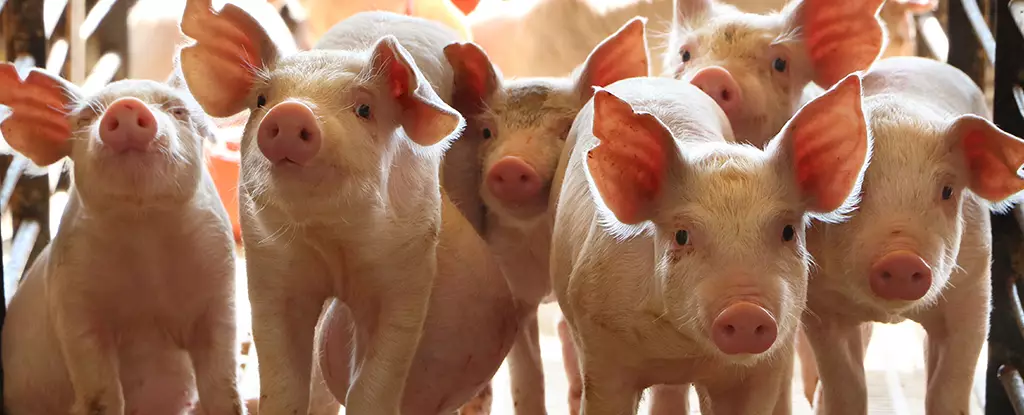Recent news of US surgeons successfully transplanting a kidney from a gene-edited pig into a human sparked great excitement in the medical world. This groundbreaking procedure marked a significant advancement in xenotransplantation, offering the potential for an endless supply of transplantable organs. With the promise of addressing organ shortage issues globally, gene-edited pigs hold immense potential in revolutionizing the field of transplant medicine.
The success of xenotransplantation heavily relies on overcoming critical barriers such as organ rejection and the transmission of animal viruses to recipients. However, the emergence of CRISPR/Cas9 technology has introduced a new platform for gene editing that shows great promise in mitigating these challenges. By leveraging the natural defense mechanism found in bacteria, CRISPR gene editing has the capability to precisely edit genes in donor pigs to inactivate viral genes, humanize the organs with human genes, and eliminate harmful pig genes.
Despite the optimism surrounding CRISPR gene editing in xenotransplantation, recent trials have highlighted the need for caution and thorough evaluation. Cases of patients receiving gene-edited pig organs, such as hearts and livers, have shown mixed results with some patients succumbing to complications shortly after the procedures. The complexity of these procedures, coupled with the high number of gene edits required, underscores the challenges that researchers and healthcare providers face in transforming xenotransplantation into a viable solution for organ shortages.
As the field of xenotransplantation continues to evolve, regulatory bodies are increasingly tasked with evaluating the safety and efficacy of gene-edited organ transplants. While CRISPR technology has already made its debut in mainstream medicine for treating genetic diseases, the application of gene editing in xenotransplantation presents unique ethical and regulatory considerations. The prospect of conducting clinical trials for pig-human xenotransplantation raises questions about the ethical boundaries of gene editing and organ transplantation.
As the race to develop viable xenotransplantation solutions intensifies, the future of gene-edited pigs in organ transplantation remains uncertain. While the successful transplantation of organs from gene-edited pigs into humans is a significant milestone, there is still much work to be done to ensure the long-term success and safety of these procedures. The journey towards incorporating gene editing technology into organ transplantation practices is fraught with challenges and complexities that require careful consideration and ethical deliberation.
The intersection of gene editing and xenotransplantation holds immense promise for revolutionizing the field of organ transplantation. While the recent achievements in gene-edited pig organ transplants mark a significant advancement in medical science, the road ahead is paved with challenges that necessitate caution, regulatory oversight, and further research. Only through continued innovation, collaboration, and ethical scrutiny can the potential of gene editing in xenotransplantation be fully realized for the benefit of patients worldwide.


Leave a Reply